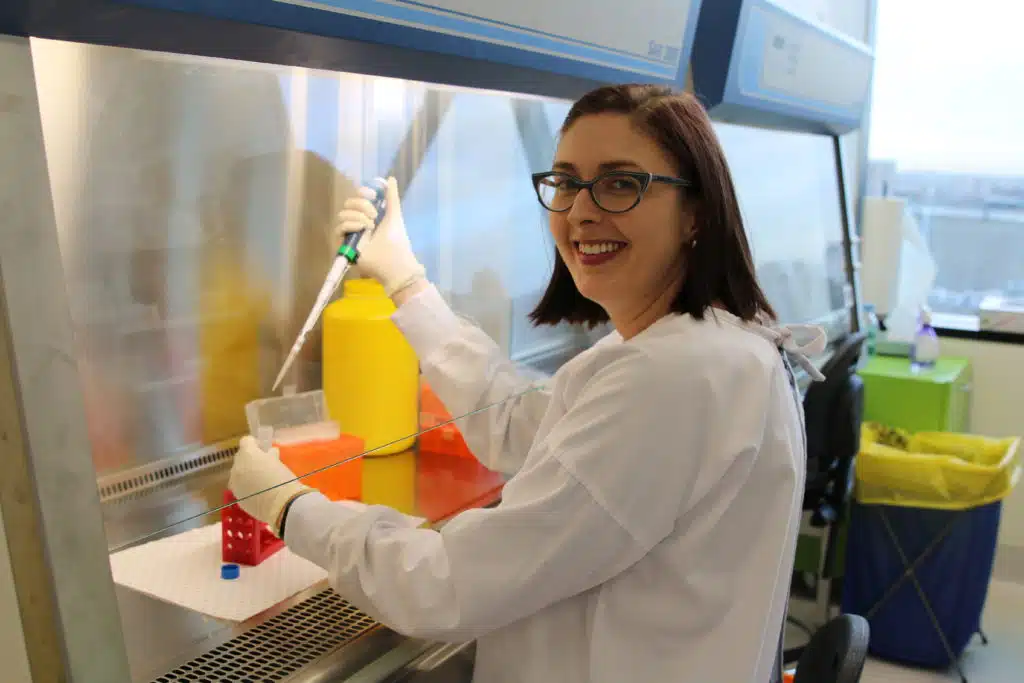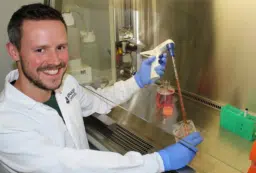A prototype blood test to detect resistance to chemotherapy in women with ovarian cancer has been developed by Melbourne researchers.
“I hope that it could be ready for use in a few years,” says Dr Elizabeth Christie of the Peter MacCallum Cancer Centre, who is leading the work.
“Ultimately, I hope this work will lead to a simple way to identify which women with recurrent ovarian cancer will benefit from certain treatments.”
Ovarian cancer is the fifth most common cancer in women. The major cause of death in ovarian cancer is acquired resistance to chemotherapy. But there’s currently no way of knowing who will become resistant over time.
Liz found four genetic changes in samples from 20 tumours that had become resistant to chemotherapy. She designed a test that can detect one of these mutations from cancer DNA circulating in the blood (since cancer cells can shed small bits of DNA into the bloodstream).
“My team is now investigating whether the blood test can be utilised to monitor the emergence of these mutations over time, and detect chemotherapy resistance earlier than we can now,” Liz says.
“I’m also investigating which chemotherapies are likely to be effective for patients with these mutations. By identifying patients who are developing chemotherapy resistance and tailoring the treatment specifically for each woman, doctors will be able to avoid therapies unlikely to be effective.”





 Fresh Science is on hold for 2022. We will be back in 2023.
Fresh Science is on hold for 2022. We will be back in 2023.